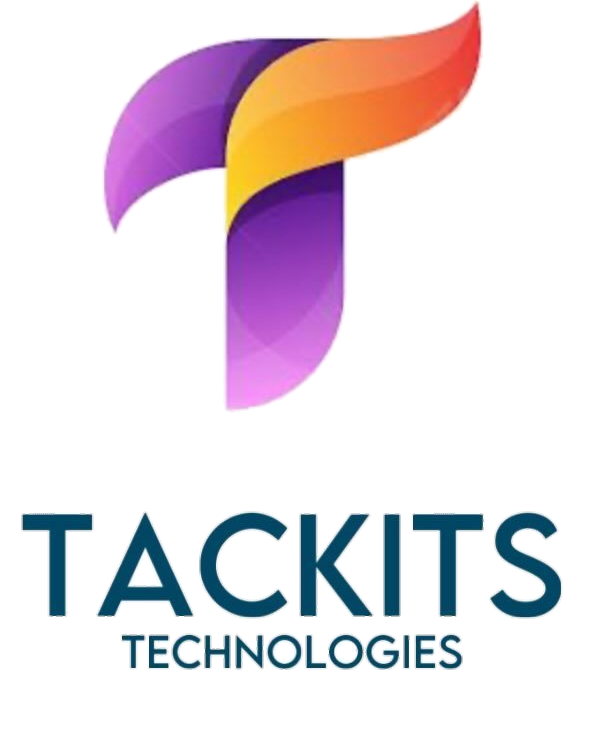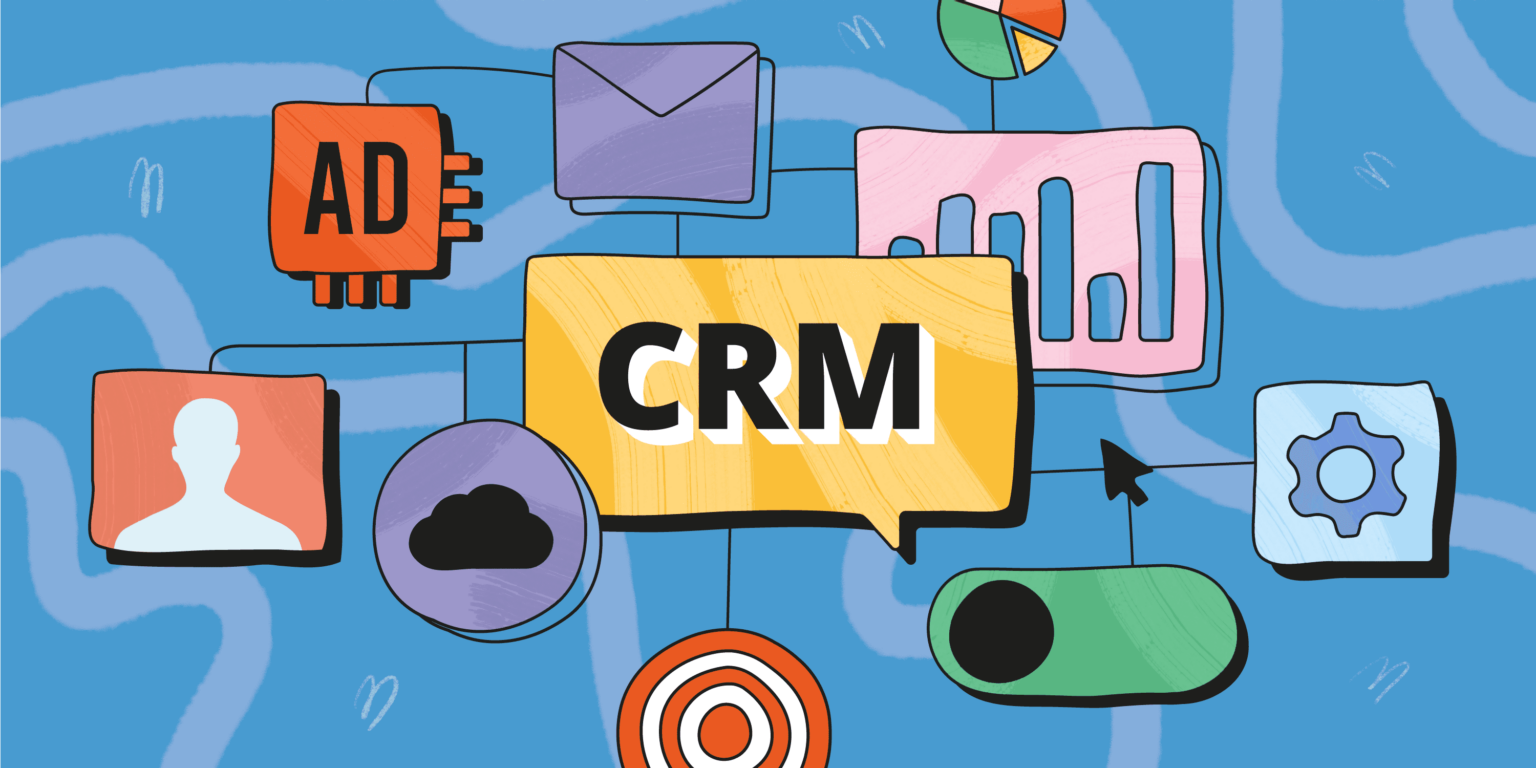While many CRM systems on the market focus on enterprise companies, there are also a number of startup-focused CRMs tailored to the needs of young, small, and/or rapidly growing businesses. These solutions provide an intuitive, user-friendly customer experience, scalable pricing, and core CRM features needed to grow customer bases and improve customer relationships and retention.
when your startup begins to grow, you need to be ready—with the suitable systems to support growth and manage scale. That’s why we recommend getting set up with the right CRM for your business needs as early as possible.
For small startups, the best CRM software should be easy to use, affordable, and scalable. Here are top choices:
HubSpot CRM (Overall best CRM for startups)
- Free to start, with intuitive features for contact management, email tracking, and sales pipelines. Great for growing teams.

Pros:
- Generous free plan
- Great ease of use
- Over 1,000 pre-built integrations
- Supremely customizable
- Top-notch customer support
- Startup-friendly pricing
Cons:
- It can get pricey as you scale
- An all-in-one CRM solution may be more than your startup needs
Zoho CRM (Best CRM for startups on a budget)
- Budget-friendly with strong automation, customization, and multi-channel communication tools.
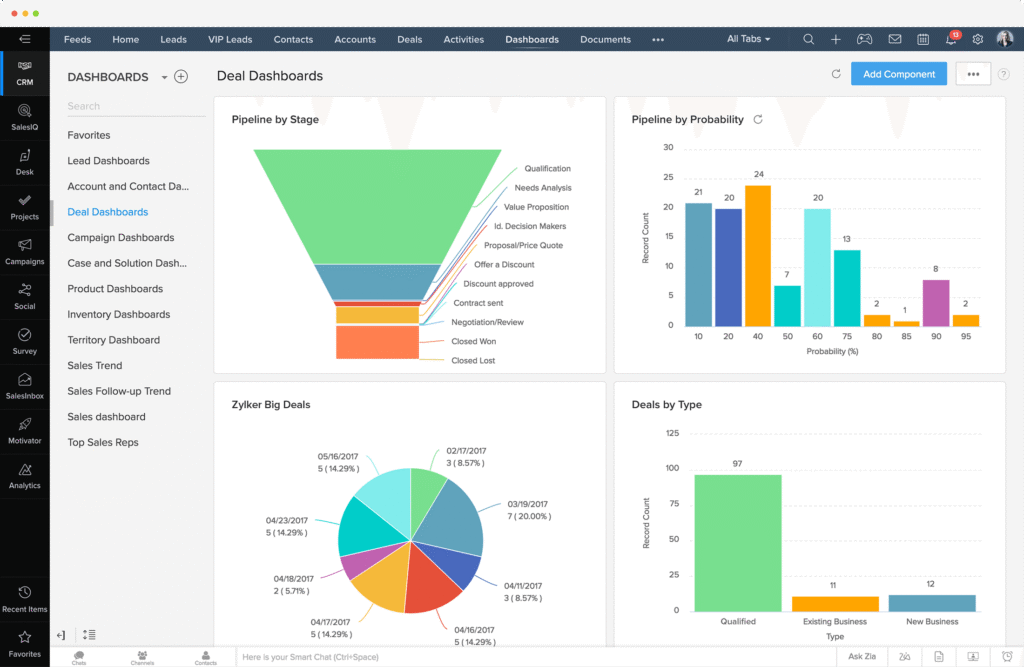
Pros:
- Affordable, scalable paid plans
- Well-designed mobile apps
- Robust marketing automation and AI tools
- Tons of integrations
- Supremely customizable interface
Cons:
- Less in-depth feature-set
- Free plan limited to 3 users
- The design is somewhat outdated
Pipedrive (Best startup CRM for pipeline management)
- Designed for sales-focused startups, offering a simple interface and excellent pipeline management.
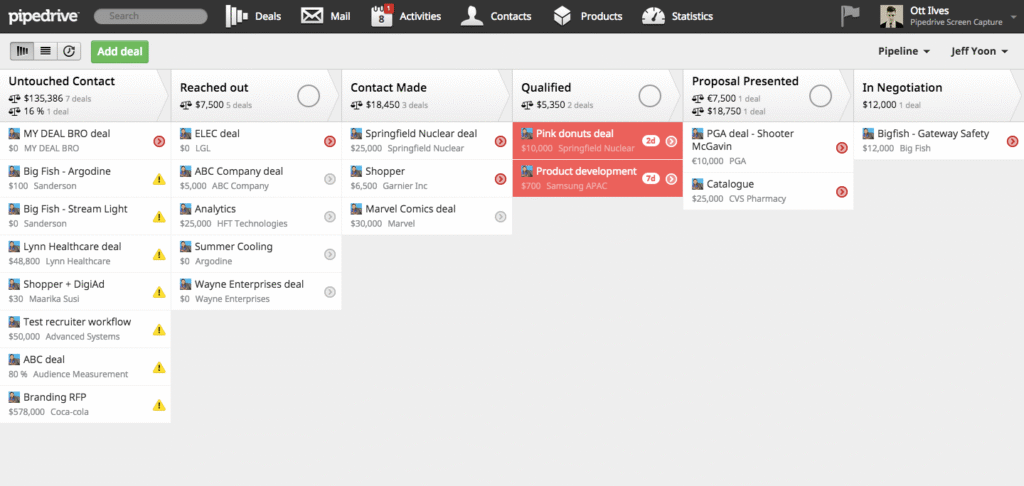
Pros:
- Activity-focused methodology
- Great for managing pipeline
- Scalable plans and add-ons
- Easy to use
- Integrated calling, chatbot, and live chat
- Email automation and tracking
Cons:
- No free plan
- Limited features for customer service
- Less robust feature-set
Close CRM (Excellent for CRM and task management features)
- The software’s unique inbox feature brings together emails, calls, SMS, and tasks, streamlining day-to-day communication and keeping sales reps on top of daily activities. It’s like a CRM married to a task management app.
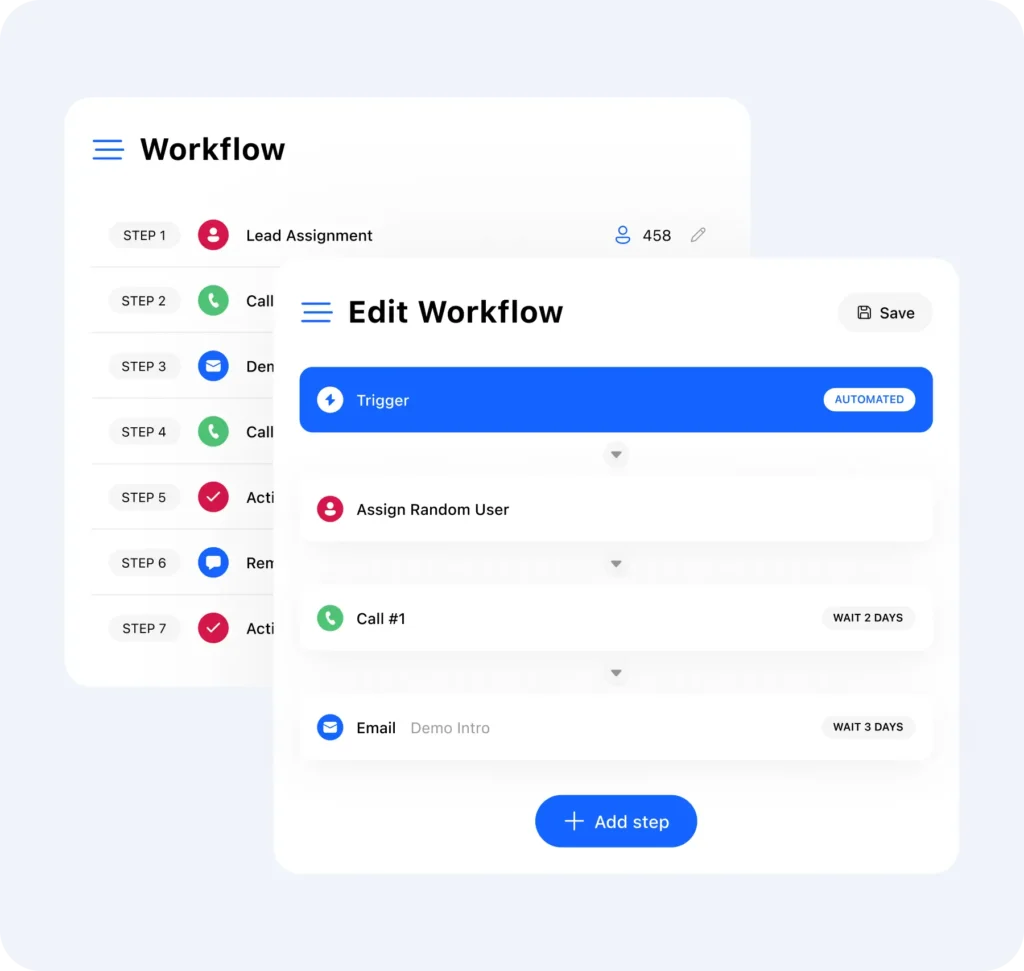
Pros:
- Sales-focused tools for lead and contact management
- Sales pipeline management features
- Multichannel inbox for centralized communication
- Approachable starting price
- Useful productivity-boosting features
Cons:
- No free plan
- Limited support options
- No built-in solution for lead capture
- Fewer app integrations than most CRM tools
- It may not be ideal for cross-departmental use
Salesforce (Best sales CRM for SaaS startups)
- “Salesforce” is practically synonymous with “CRM,” and that’s for good reason. Salesforce offers just about every advanced feature organizations of any size may need. The tailored Starter Suite includes essential versions of these features—for up to 10 users—at a startup-friendly price.
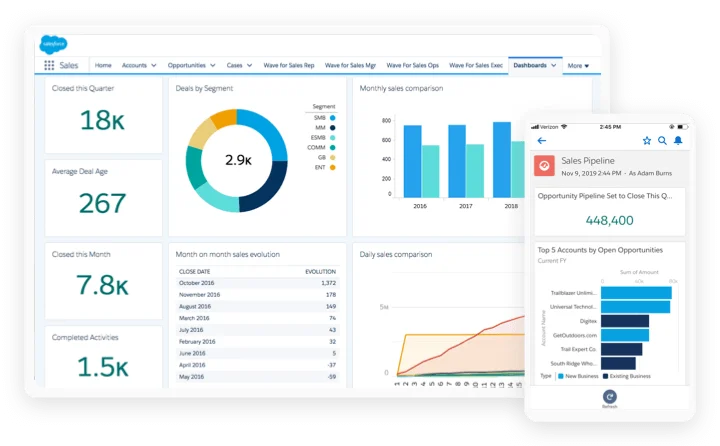
Pros:
- Einstein Activity Capture eliminates manual data input
- Robust user support and training
- Extensive App Exchange and integrations
- Sales-focused tools for lead and contact management
- Offers features like organizing customer data and tracking sales
Cons:
- No free plan
- Complex interface and feature-rich CRM comes with a learning curve
- Starter Suite limited to 10 users
- Potentially high upgrade costs
